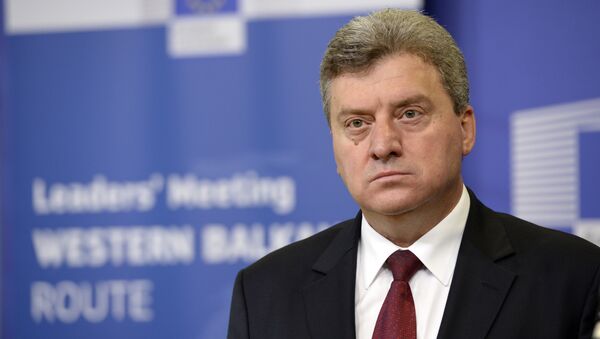On April 12, Ivanov announced his decision to pardon 56 top politicians and their associates, a number of whom were involved in the 2015 scandal, when the opposition accused the ruling conservatives of intercepting telephone conversations of some 20,000 people, including police officers, judges, journalists and diplomats. Ivanov's decision triggered the opposition to launch protests aimed at withdrawing the pardon and seeking resignation of Ivanov.
"I was accused that I want to protect politicians and that I created selective justice. I had no such intention… Unlike on April 12th, today we have a new reality in Macedonia," Ivanov said in a televised address.
The political crisis in Macedonia, which revolved around the wire-tapping scandal, resulted in the agreement reached last year between the most influential parties in Macedonia, under which then-Prime Minster Nikola Gruevski resigned in January, the parliament was dissolved, and early elections were announced.
The crisis deepened as the elections, initially scheduled for April 24, were boycotted by major political forces, except for the ruling conservative party of Gruevski. The elections were postponed to June 5, but earlier this month, the Constitutional Court of Macedonia ordered to halt preparations for the June elections.
On Thursday, the Macedonian Parliament took to consideration the impeachment of the president, which was promoted by the major opposition forces in Macedonia.





